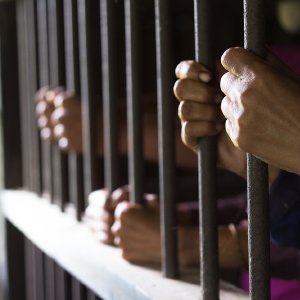Bergen County, New Jersey, Offers Innovative Rehab Program Inside their Jail

Of all the states, New Jersey is one of the hardest hit by the heroin epidemic. Cities like Newark, Camden, Paterson,Toms River and Atlantic City have hundreds of cases of heroin abuse reported each year. Annual admissions to addiction treatment for heroin range from one person in Holland on the west side of the state to a staggering 557 admissions in Atlantic City. In Bergen County in the northern part of the state, officials have shown their determination to fight this problem by offering a long-term rehab program inside the county’s jail.
One of their success stories, according to the Hackensack Daily Voice, is Anita Rogers. After becoming addicted to heroin and cocaine and landing in jail repeatedly, Anita took advantage of this 90-day program. Living in a dorm with others in recovery, she received counseling, took educational classes and got vocational training.

The end of the 90-day program is not the end of each person’s support, however. When the person leaves the jail, they’re connected to a community resource center that helps them with housing, job placement and other support they need to stay drug-free. This program worked for Anita. When she was released from jail, she got a job as a supervisor in the food industry and stayed sober.
In the years the program has been running, hundreds of inmates have been graduated from this program.
This is just one of many ways that Bergen County officials are fighting the addiction problem. In 2017, they launched a pilot program in three cities that invited those who are addicted to walk into a police station, turn in their drugs and ask for help. Each person will be matched up with a counselor they can talk to about rehabilitation. In 2002, the state instituted drug courts where offenders can be closely monitored, adhere to strict guidelines, go through G.E.D. tutoring and job placement and avoid jail time.
The Reality of Addiction

The sad truth is that many people accumulate arrest records because of the criminal acts they commit just so they can get the drugs they feel compelled to consume. But if you take away the addiction and teach the person to cope with life and hold a job, that addicted individual can be replaced by an honest, productive person – the real person that was hidden the whole duration of the addiction.
In New Jersey, the sheriff, police and corrections staff were able to look past the surface manifestation of addiction and see the person who could be rehabilitated. That was the beginning of the Bergen County Jail Drug Rehabilitation Center. It’s this understanding that addiction can be overcome that reduces stigma and increases the hope of the whole community.


 ®
®